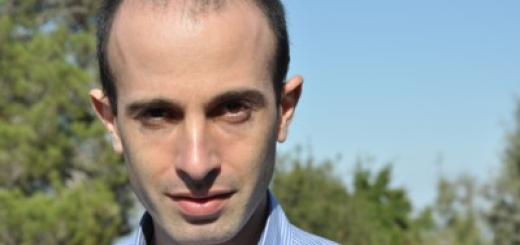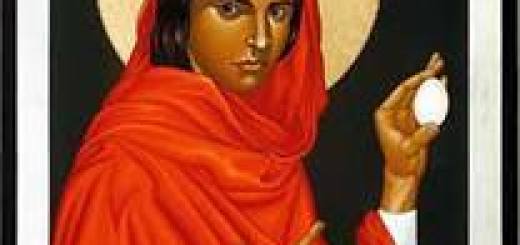Luke 19, 27: Slay them before me? Jesus said that? I Can’t Swallow It! – Letter to Editor!

Jesus is reported to have said (Lk. 19,27): “Now as for those enemies of mine who did not want me as their king, bring them here and slay them before me.” Honestly I could not just swallow it or spit it out, if Jesus I knew actually said it! So it is still stuck in my throat!
King and Slay!
The two howlingly objectionable points for me in the quote were first the hint that he wanted to be the KING of his followers and second, he would mercilessly see them killed brutally in front of him. That was not the GURU I was following and continue to follow even now. So the dilemma!
So I put It for public discussion hoping that many would react, but none did except Pamplanil who simply ditched it saying Bible is a tissue of lies (See CCV: Jujy 21). Could be correct! George is the second person to comment on it.
Usual for Faith-led
The usual practice of all faith-led believers in God or Jesus as the Son of God is to justify what he said or did, by hook or crook, because it is assumed (not proved) a God they believe in, can never do or go wrong in his words and deeds.
I too simply believed that Jesus was the Son of God. But when the Church started asking me to imitate him problems started for me: How I a creature imitate my creator? Impossible! Then on I started following and imitating him as the great, ideal SON OF MAN, taking a cue from his great statement after the “washing of the feet” that he was not their Lord and Master but intimate friend.
From then on I followed him, in fact head on heels in love and admiration for him in spite of many things he said like “I and the Father are one” I could not understand or things he did. Being a creature, human, I am bound to follow my light of reason only, which could be that of a Fire-fly, not definitely of the stars, Moon or Sun. This applies to all humans.
Jesus gave servant model!
How cn one who wanted to be a foot-washer, servant of all, one without a place to rest his head, simultaneously demand the right to be rule and lord over as king and emperor reigning in a royal palace! Contradiction par excellance! One should be totally out of one’s senses to say such an absurdity!
Of course, I am immensely grateful to both Pamplanil and George, for their frankly speaking explanation. But then I have to change my goal post to suit them and be totally irrational. So the dilemma continues for me to seek refuge elsewhere, may be in Vedanta thinking!
Being is one with each soul?
Akam sat, behuda vadanti. Being is one and each soul is fully that being, not just part of it. The enlightened call it by diffent names depending on the presence or absence of Maya or ignorance. This itself is hard to digest! In any case life on earth must have a lucid explanation, I still think.
And may be Jesus is not definitly the ANSWER-MAN, nor are any one of us. Then, is LIFE an insoluble enigma? That is defeatism to which none of us should succumb as long as alive! Life can’t be something to “Live in hope and die in despair!”
Dare and Hope?
Instead “Dare and hope!” used to be the motto of my late French Arch bishop Louis Mathias! That seems to give a flicker of strength to push on. Any better option to suggest? james kottoor
Please read below George’s letter!
George Nedumparampil
Dear James,
I have seen the exchanges between you and our common friend, Varghese Pamplanil. I do not want to be the grass over which two elephants position themselves and engage in a friendly locking of horns. Therefore I will skip commenting on the exchanges you both had.
But there is one point on which I thought that I should commend on. Permit me therefore to say what I make of the verse Luke 19:27. James portrayed the verse as implying a standard that Jesus wanted followed. I do not share that view. In my view Jesus was doing what he did best – talk using parables. There is no better way to speak to an audience that was presumed to be illiterate. A child does not know that the flame from a candle could cause burns. But it learns fast if it touches the flame which then becomes learning through fast-track mode which is what parables are in effect.
To me, the parables are stories within a story. If Bible is regarded as storybook, several characters come and go to constitute stories within that story. The Gospel writers have extensively used parables or stories within story so that the listeners understood better what the speaker wanted to convey. The gospels were written decades after Jesus’ death and I therefore should imagine that there occurred a lot of instances of putting words in the mouth of Jesus through literary skills and imagination of writers. It is hard to imagine that someone could report verbatim what was said decades ago. The verse in question reads:-
“And as for these enemies of mine who didn’t want me to be their king—bring them in and execute them right here in front of me.”
I have heard Luke 19 read in churches over and over again. But I never imagined the spin that James gave it. I have seen it merely as a parable that could be extrapolated to justify entrepreneurship by putting money to work, legalizing the industry of banking, payment and collection of interest and that an employer keeps only productive employees.
As for the verse in question, the gospel writer could have intended to convey how ruthlessly kings would deal with unproductive subjects, a thing that is easily understood by people of those times living under ruthless rulers. In my view, it would be too farfetched to extrapolate the verse to make a killer out of Jesus, i.e. those who did not accept his teaching deserved to be brought to him and killed at once.
But the Roman Catholic Church of the medieval period may have understood the way James understood it. In the medieval times, anyone who disagreed with church teaching were rounded up and after a brief hearing at a kangaroo court were promptly set aflame with cheering crowds watching. Nobody knows the exact number of people dispatched in this fashion. Vatican’s secret archives may have some nearly accurate account of it.
Having said the above, I am not a great fan of parables as it comes with an inherent risk of getting interpreted in any which way one wants, just as James and I saw it differently. Sometimes though, parables are grossly misused to institutionalize the line of thinking held by Catholic Church. For example, the parables of rich man and Lazarus, the beggar, who used sit at the gate of the rich man, only to be ignored by the latter is proof that heaven and hell exist.
Both die and as expected the Lazarus goes into heaven and the rich man to hell. Rich man looking out from the burning fire sees the poor man Lazarus at the lap of Abraham.(See Luke 16:19-31 for the full transcript of the conversation that transpired between rich man and Abraham}. The Church has used this parable to what, I believe, to unintended effect.
Church used this parable to justify their belief that immediately on death, the soul of the dead person receives judgment and dispatched either to hell or heaven, never mind it is stated elsewhere in the gospel that dead and living have to face judgment upon coming again of Jesus.
But the Church had a problem though. The faithful could very well ask “then why pray for the dead”. If such beliefs gained currency the prayer industry would come crashing down. So the burning transit lounge, Purgatory, was invented. Clever guys to ensure cash flowing in freely.
It is reported that the construction of Vatican was funded through this deception. If anyone challenges a Catholic, prompt will come the reply that the word “parable” is not appearing in Luke 19! Such are the ways blind believers get blinded even more.
















